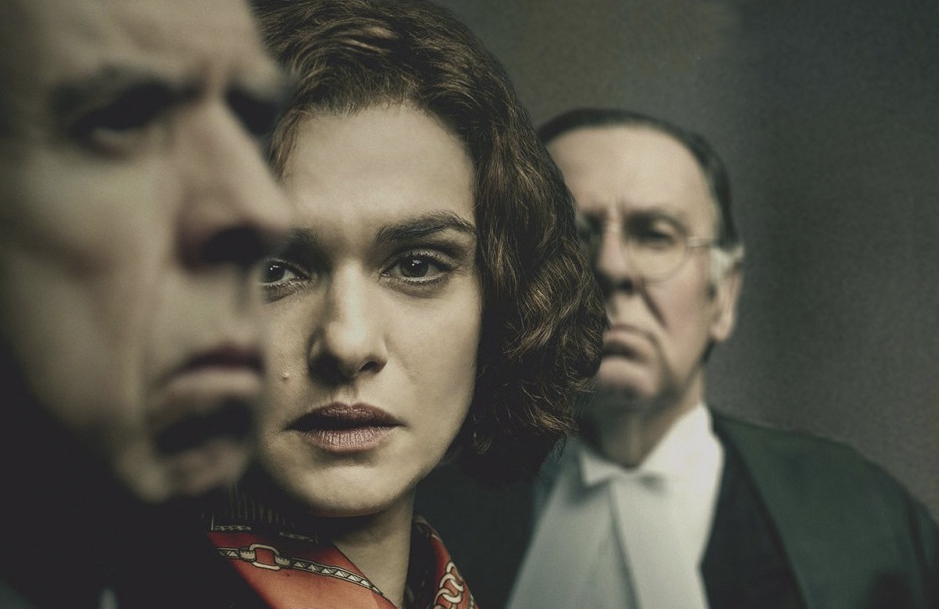 Hitler apologist David Irving would have loved to have his day – or days – in court face to face with Deborah Lipstadt, the historian he sued for libel for labelling him “one of the most dangerous spokesmen of Holocaust denial”. It is more a strength than a weakness of the film charting Irving’s high-profile defeat by Lipstadt's team of lawyers that Lipstadt herself maintains a dignified ‘silence in court’.
Hitler apologist David Irving would have loved to have his day – or days – in court face to face with Deborah Lipstadt, the historian he sued for libel for labelling him “one of the most dangerous spokesmen of Holocaust denial”. It is more a strength than a weakness of the film charting Irving’s high-profile defeat by Lipstadt's team of lawyers that Lipstadt herself maintains a dignified ‘silence in court’.
Mick Jackson’s film (script David Edgar) is elegantly structured, giving a taste early on of what might happen if Rachel Weisz’s passionate, intelligent Lipstadt does not keep her own counsel. Timothy Spall’s Irving is chilling from the first glimpse of his eyes, narrowed balefully with Lipstadt in his sights, preparing to hijack her keynote lecture at UCLA by interrupting, shouting her down, and publicising his latest pro-Hitler book.
Once Irving has sued her, in the British legal system where she must prove her innocence, the action moves to London, and the imposing Inns of Court. The exteriors are shot on location. The wood-panelled interiors, crammed with clubbable members of the huge defence team meeting over wine and cheese, conjure up fusty, yet reassuringly British legal traditions. It’s heartening to see the older, experienced legal eagles bringing on the bright youngsters who research the case.
Less heartening is the reaction of British Jewry’s great and good. They advise Lipstadt to fundraise and settle out of court rather than risk defeat and affording Irving the oxygen of publicity. But really the spotlight here is on the twin stars of the legal firmament, Jewish celebrity solicitor Anthony Julius, and non-Jewish, avowedly philosemitic chain-smoking barrister Richard Rampton QC. Andrew Scott (Julius) and Tom Wilkinson (Rampton) give extraordinarily detailed portraits of a pair with incisive brilliant minds used to working seamlessly together.
There’s no such meeting of minds with the spiky Lipstadt. The Kafkaesque legalities make her frustrated and suspicious. Even a trip to Auschwitz does little to endear Rampton to her (she does not see what we do – that he’s visibly moved by his painstaking onsite research) and only when they share a nightcap in her London hotel does she thaw. Thus they establish the trust that enables her in turn to reassure the anxious Holocaust survivors whom Rampton and Julius know would be easy meat for Irving if called as witnesses. During our interview with Rampton in the January 2017 issue of JR, he confided that this moment in the hotel didn’t happen, though he appreciates the poetic licence.
So despite his displays of virulently antisemitic histrionics conducting his own case in gripping court scenes, Irving simply doesn’t get the chance to tempt Lipstadt into the ring and the rest, as they say, is (genuine) history.
By Judi Herman
Denial will be available on DVD from Monday 5 June.
Read Judi's interview with Richard Rampton QC in the January 2017 issue of Jewish Renaissance, or find it on this site by following the link on the home page.

